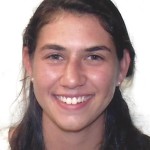My reading
Haftarat Parashat B’shallach
Judges 4:4 – 5:31
4:4 וּדְבוֹרָה֙ אִשָּׁ֣ה נְבִיאָ֔ה אֵ֖שֶׁת לַפִּיד֑וֹת הִ֛יא שֹׁפְטָ֥ה אֶת־יִשְׂרָאֵ֖ל בָּעֵ֥ת הַהִֽיא׃
4:5 וְ֠הִיא יוֹשֶׁ֨בֶת תַּֽחַת־תֹּ֜מֶר דְּבוֹרָ֗ה בֵּ֧ין הָרָמָ֛ה וּבֵ֥ין בֵּֽית־אֵ֖ל בְּהַ֣ר אֶפְרָ֑יִם וַיַּעֲל֥וּ אֵלֶ֛יהָ בְּנֵ֥י יִשְׂרָאֵ֖ל לַמִּשְׁפָּֽט׃
4:6 וַתִּשְׁלַ֗ח וַתִּקְרָא֙ לְבָרָ֣ק בֶּן־אֲבִינֹ֔עַם מִקֶּ֖דֶשׁ נַפְתָּלִ֑י וַתֹּ֨אמֶר אֵלָ֜יו הֲלֹ֥א צִוָּ֣ה׀ יְהוָ֣ה אֱלֹהֵֽי־יִשְׂרָאֵ֗ל לֵ֤ךְ וּמָֽשַׁכְתָּ֙ בְּהַ֣ר תָּב֔וֹר וְלָקַחְתָּ֣ עִמְּךָ֗ עֲשֶׂ֤רֶת אֲלָפִים֙ אִ֔ישׁ מִבְּנֵ֥י נַפְתָּלִ֖י וּמִבְּנֵ֥י זְבֻלֽוּן׃
4:7 וּמָשַׁכְתִּ֨י אֵלֶ֜יךָ אֶל־נַ֣חַל קִישׁ֗וֹן אֶת־סִֽיסְרָא֙ שַׂר־צְבָ֣א יָבִ֔ין וְאֶת־רִכְבּ֖וֹ וְאֶת־הֲמוֹנ֑וֹ וּנְתַתִּ֖יהוּ בְּיָדֶֽךָ׃
4:8 וַיֹּ֤אמֶר אֵלֶ֙יהָ֙ בָּרָ֔ק אִם־תֵּלְכִ֥י עִמִּ֖י וְהָלָ֑כְתִּי וְאִם־לֹ֥א תֵלְכִ֛י עִמִּ֖י לֹ֥א אֵלֵֽךְ׃
4:9 וַתֹּ֜אמֶר הָלֹ֧ךְ אֵלֵ֣ךְ עִמָּ֗ךְ אֶ֚פֶס כִּי֩ לֹ֨א תִֽהְיֶ֜ה תִּֽפְאַרְתְּךָ֗ עַל־הַדֶּ֙רֶךְ֙ אֲשֶׁ֣ר אַתָּ֣ה הוֹלֵ֔ךְ כִּ֣י בְֽיַד־אִשָּׁ֔ה יִמְכֹּ֥ר יְהוָ֖ה אֶת־סִֽיסְרָ֑א וַתָּ֧קָם דְּבוֹרָ֛ה וַתֵּ֥לֶךְ עִם־בָּרָ֖ק קֶֽדְשָׁה׃
4:10 וַיַּזְעֵ֨ק בָּרָ֜ק אֶת־זְבוּלֻ֤ן וְאֶת־נַפְתָּלִי֙ קֶ֔דְשָׁה וַיַּ֣עַל בְּרַגְלָ֔יו עֲשֶׂ֥רֶת אַלְפֵ֖י אִ֑ישׁ וַתַּ֥עַל עִמּ֖וֹ דְּבוֹרָֽה׃
4:11 וְחֶ֤בֶר הַקֵּינִי֙ נִפְרָ֣ד מִקַּ֔יִן מִבְּנֵ֥י חֹבָ֖ב חֹתֵ֣ן מֹשֶׁ֑ה וַיֵּ֣ט אָהֳל֔וֹ עַד־אֵל֥וֹן בצענים [בְּצַעֲנַנִּ֖ים] אֲשֶׁ֥ר אֶת־קֶֽדֶשׁ׃
4:12 וַיַּגִּ֖דוּ לְסִֽיסְרָ֑א כִּ֥י עָלָ֛ה בָּרָ֥ק בֶּן־אֲבִינֹ֖עַם הַר־תָּבֽוֹר׃
4:13 וַיַּזְעֵ֨ק סִֽיסְרָ֜א אֶת־כָּל־רִכְבּ֗וֹ תְּשַׁ֤ע מֵאוֹת֙ רֶ֣כֶב בַּרְזֶ֔ל וְאֶת־כָּל־הָעָ֖ם אֲשֶׁ֣ר אִתּ֑וֹ מֵחֲרֹ֥שֶׁת הַגּוֹיִ֖ם אֶל־נַ֥חַל קִישֽׁוֹן׃
4:14 וַתֹּאמֶר֩ דְּבֹרָ֨ה אֶל־בָּרָ֜ק ק֗וּם כִּ֣י זֶ֤ה הַיּוֹם֙ אֲשֶׁר֩ נָתַ֨ן יְהוָ֤ה אֶת־סִֽיסְרָא֙ בְּיָדֶ֔ךָ הֲלֹ֥א יְהוָ֖ה יָצָ֣א לְפָנֶ֑יךָ וַיֵּ֤רֶד בָּרָק֙ מֵהַ֣ר תָּב֔וֹר וַעֲשֶׂ֧רֶת אֲלָפִ֛ים אִ֖ישׁ אַחֲרָֽיו׃
4:15 וַיָּ֣הָם יְ֠הוָה אֶת־סִֽיסְרָ֨א וְאֶת־כָּל־הָרֶ֧כֶב וְאֶת־כָּל־הַֽמַּחֲנֶ֛ה לְפִי־חֶ֖רֶב לִפְנֵ֣י בָרָ֑ק וַיֵּ֧רֶד סִֽיסְרָ֛א מֵעַ֥ל הַמֶּרְכָּבָ֖ה וַיָּ֥נָס בְּרַגְלָֽיו׃
4:16 וּבָרָ֗ק רָדַ֞ף אַחֲרֵ֤י הָרֶ֙כֶב֙ וְאַחֲרֵ֣י הַֽמַּחֲנֶ֔ה עַ֖ד חֲרֹ֣שֶׁת הַגּוֹיִ֑ם וַיִּפֹּ֞ל כָּל־מַחֲנֵ֤ה סִֽיסְרָא֙ לְפִי־חֶ֔רֶב לֹ֥א נִשְׁאַ֖ר עַד־אֶחָֽד׃
4:17 וְסִֽיסְרָא֙ נָ֣ס בְּרַגְלָ֔יו אֶל־אֹ֣הֶל יָעֵ֔ל אֵ֖שֶׁת חֶ֣בֶר הַקֵּינִ֑י כִּ֣י שָׁל֗וֹם בֵּ֚ין יָבִ֣ין מֶֽלֶךְ־חָצ֔וֹר וּבֵ֕ין בֵּ֖ית חֶ֥בֶר הַקֵּינִֽי׃
4:18 וַתֵּצֵ֣א יָעֵל֮ לִקְרַ֣את סִֽיסְרָא֒ וַתֹּ֣אמֶר אֵלָ֗יו סוּרָ֧ה אֲדֹנִ֛י סוּרָ֥ה אֵלַ֖י אַל־תִּירָ֑א וַיָּ֤סַר אֵלֶ֙יהָ֙ הָאֹ֔הֱלָה וַתְּכַסֵּ֖הוּ בַּשְּׂמִיכָֽה׃
4:19 וַיֹּ֧אמֶר אֵלֶ֛יהָ הַשְׁקִינִי־נָ֥א מְעַט־מַ֖יִם כִּ֣י צָמֵ֑אתִי וַתִּפְתַּ֞ח אֶת־נֹ֧אוד הֶחָלָ֛ב וַתַּשְׁקֵ֖הוּ וַתְּכַסֵּֽהוּ׃
4:20 וַיֹּ֣אמֶר אֵלֶ֔יהָ עֲמֹ֖ד פֶּ֣תַח הָאֹ֑הֶל וְהָיָה֩ אִם־אִ֨ישׁ יָב֜וֹא וּשְׁאֵלֵ֗ךְ וְאָמַ֛ר הֲיֵֽשׁ־פֹּ֥ה אִ֖ישׁ וְאָמַ֥רְתְּ אָֽיִן׃
4:21 וַתִּקַּ֣ח יָעֵ֣ל אֵֽשֶׁת־חֶ֠בֶר אֶת־יְתַ֨ד הָאֹ֜הֶל וַתָּ֧שֶׂם אֶת־הַמַּקֶּ֣בֶת בְּיָדָ֗הּ וַתָּב֤וֹא אֵלָיו֙ בַּלָּ֔אט וַתִּתְקַ֤ע אֶת־הַיָּתֵד֙ בְּרַקָּת֔וֹ וַתִּצְנַ֖ח בָּאָ֑רֶץ וְהֽוּא־נִרְדָּ֥ם וַיָּ֖עַף וַיָּמֹֽת׃
4:22 וְהִנֵּ֣ה בָרָק֮ רֹדֵ֣ף אֶת־סִֽיסְרָא֒ וַתֵּצֵ֤א יָעֵל֙ לִקְרָאת֔וֹ וַתֹּ֣אמֶר ל֔וֹ לֵ֣ךְ וְאַרְאֶ֔ךָּ אֶת־הָאִ֖ישׁ אֲשֶׁר־אַתָּ֣ה מְבַקֵּ֑שׁ וַיָּבֹ֣א אֵלֶ֔יהָ וְהִנֵּ֤ה סִֽיסְרָא֙ נֹפֵ֣ל מֵ֔ת וְהַיָּתֵ֖ד בְּרַקָּתֽוֹ׃
4:23 וַיַּכְנַ֤ע אֱלֹהִים֙ בַּיּ֣וֹם הַה֔וּא אֵ֖ת יָבִ֣ין מֶֽלֶךְ־כְּנָ֑עַן לִפְנֵ֖י בְּנֵ֥י יִשְׂרָאֵֽל׃
4:24 וַתֵּ֜לֶךְ יַ֤ד בְּנֵֽי־יִשְׂרָאֵל֙ הָל֣וֹךְ וְקָשָׁ֔ה עַ֖ל יָבִ֣ין מֶֽלֶךְ־כְּנָ֑עַן עַ֚ד אֲשֶׁ֣ר הִכְרִ֔יתוּ אֵ֖ת יָבִ֥ין מֶֽלֶךְ־כְּנָֽעַן׃
5:1 וַתָּ֣שַׁר דְּבוֹרָ֔ה וּבָרָ֖ק בֶּן־אֲבִינֹ֑עַם בַּיּ֥וֹם הַה֖וּא לֵאמֹֽר׃
5:2 בִּפְרֹ֤עַ פְּרָעוֹת֙ בְּיִשְׂרָאֵ֔ל בְּהִתְנַדֵּ֖ב עָ֑ם בָּרֲכ֖וּ יְהוָֽה׃
5:3 שִׁמְע֣וּ מְלָכִ֔ים הַאֲזִ֖ינוּ רֹֽזְנִ֑ים אָֽנֹכִ֗י לַֽיהוָה֙ אָנֹכִ֣י אָשִׁ֔ירָה אֲזַמֵּ֕ר לַֽיהוָ֖ה אֱלֹהֵ֥י יִשְׂרָאֵֽל׃
5:4 יְהוָ֗ה בְּצֵאתְךָ֤ מִשֵּׂעִיר֙ בְּצַעְדְּךָ֙ מִשְּׂדֵ֣ה אֱד֔וֹם אֶ֣רֶץ רָעָ֔שָׁה גַּם־שָׁמַ֖יִם נָטָ֑פוּ גַּם־עָבִ֖ים נָ֥טְפוּ מָֽיִם׃
5:5 הָרִ֥ים נָזְל֖וּ מִפְּנֵ֣י יְהוָ֑ה זֶ֣ה סִינַ֔י מִפְּנֵ֕י יְהוָ֖ה אֱלֹהֵ֥י יִשְׂרָאֵֽל׃
5:6 בִּימֵ֞י שַׁמְגַּ֤ר בֶּן־עֲנָת֙ בִּימֵ֣י יָעֵ֔ל חָדְל֖וּ אֳרָח֑וֹת וְהֹלְכֵ֣י נְתִיב֔וֹת יֵלְכ֕וּ אֳרָח֖וֹת עֲקַלְקַלּֽוֹת׃
5:7 חָדְל֧וּ פְרָז֛וֹן בְּיִשְׂרָאֵ֖ל חָדֵ֑לּוּ עַ֤ד שַׁקַּ֙מְתִּי֙ דְּבוֹרָ֔ה שַׁקַּ֥מְתִּי אֵ֖ם בְּיִשְׂרָאֵֽל׃
5:8 יִבְחַר֙ אֱלֹהִ֣ים חֲדָשִׁ֔ים אָ֖ז לָחֶ֣ם שְׁעָרִ֑ים מָגֵ֤ן אִם־יֵֽרָאֶה֙ וָרֹ֔מַח בְּאַרְבָּעִ֥ים אֶ֖לֶף בְּיִשְׂרָאֵֽל׃
5:9 לִבִּי֙ לְחוֹקְקֵ֣י יִשְׂרָאֵ֔ל הַמִּֽתְנַדְּבִ֖ים בָּעָ֑ם בָּרֲכ֖וּ יְהוָֽה׃
5:10 רֹכְבֵי֩ אֲתֹנ֨וֹת צְחֹר֜וֹת יֹשְׁבֵ֧י עַל־מִדִּ֛ין וְהֹלְכֵ֥י עַל־דֶּ֖רֶךְ שִֽׂיחוּ׃
5:11 מִקּ֣וֹל מְחַֽצְצִ֗ים בֵּ֚ין מַשְׁאַבִּ֔ים שָׁ֤ם יְתַנּוּ֙ צִדְק֣וֹת יְהוָ֔ה צִדְקֹ֥ת פִּרְזֹנ֖וֹ בְּיִשְׂרָאֵ֑ל אָ֛ז יָרְד֥וּ לַשְּׁעָרִ֖ים עַם־יְהוָֽה׃
5:12 עוּרִ֤י עוּרִי֙ דְּבוֹרָ֔ה ע֥וּרִי ע֖וּרִי דַּבְּרִי־שִׁ֑יר ק֥וּם בָּרָ֛ק וּֽשֲׁבֵ֥ה שֶׁבְיְךָ֖ בֶּן־אֲבִינֹֽעַם׃
5:13 אָ֚ז יְרַ֣ד שָׂרִ֔יד לְאַדִּירִ֖ים עָ֑ם יְהוָ֕ה יְרַד־לִ֖י בַּגִּבּוֹרִֽים׃
5:14 מִנִּ֣י אֶפְרַ֗יִם שָׁרְשָׁם֙ בַּעֲמָלֵ֔ק אַחֲרֶ֥יךָ בִנְיָמִ֖ין בַּֽעֲמָמֶ֑יךָ מִנִּ֣י מָכִ֗יר יָֽרְדוּ֙ מְחֹ֣קְקִ֔ים וּמִ֨זְּבוּלֻ֔ן מֹשְׁכִ֖ים בְּשֵׁ֥בֶט סֹפֵֽר׃
5:15 וְשָׂרַ֤י בְּיִשָּׂשכָר֙ עִם־דְּבֹרָ֔ה וְיִשָּׂשכָר֙ כֵּ֣ן בָּרָ֔ק בָּעֵ֖מֶק שֻׁלַּ֣ח בְּרַגְלָ֑יו בִּפְלַגּ֣וֹת רְאוּבֵ֔ן גְּדֹלִ֖ים חִקְקֵי־לֵֽב׃
5:16 לָ֣מָּה יָשַׁ֗בְתָּ בֵּ֚ין הַֽמִּשְׁפְּתַ֔יִם לִשְׁמֹ֖עַ שְׁרִק֣וֹת עֲדָרִ֑ים לִפְלַגּ֣וֹת רְאוּבֵ֔ן גְּדוֹלִ֖ים חִקְרֵי־לֵֽב׃
5:17 גִּלְעָ֗ד בְּעֵ֤בֶר הַיַּרְדֵּן֙ שָׁכֵ֔ן וְדָ֕ן לָ֥מָּה יָג֖וּר אֳנִיּ֑וֹת אָשֵׁ֗ר יָשַׁב֙ לְח֣וֹף יַמִּ֔ים וְעַ֥ל מִפְרָצָ֖יו יִשְׁכּֽוֹן׃
5:18 זְבֻל֗וּן עַ֣ם חֵרֵ֥ף נַפְשׁ֛וֹ לָמ֖וּת וְנַפְתָּלִ֑י עַ֖ל מְרוֹמֵ֥י שָׂדֶֽה׃
5:19 בָּ֤אוּ מְלָכִים֙ נִלְחָ֔מוּ אָ֤ז נִלְחֲמוּ֙ מַלְכֵ֣י כְנַ֔עַן בְּתַעְנַ֖ךְ עַל־מֵ֣י מְגִדּ֑וֹ בֶּ֥צַע כֶּ֖סֶף לֹ֥א לָקָֽחוּ׃
5:20 מִן־שָׁמַ֖יִם נִלְחָ֑מוּ הַכּֽוֹכָבִים֙ מִמְּסִלּוֹתָ֔ם נִלְחֲמ֖וּ עִם־סִיסְרָֽא׃
5:21 נַ֤חַל קִישׁוֹן֙ גְּרָפָ֔ם נַ֥חַל קְדוּמִ֖ים נַ֣חַל קִישׁ֑וֹן תִּדְרְכִ֥י נַפְשִׁ֖י עֹֽז׃
5:22 אָ֥ז הָלְמ֖וּ עִקְּבֵי־ס֑וּס מִֽדַּהֲר֖וֹת דַּהֲר֥וֹת אַבִּירָֽיו׃
5:23 א֣וֹרוּ מֵר֗וֹז אָמַר֙ מַלְאַ֣ךְ יְהוָ֔ה אֹ֥רוּ אָר֖וֹר יֹשְׁבֶ֑יהָ כִּ֤י לֹֽא־בָ֙אוּ֙ לְעֶזְרַ֣ת יְהוָ֔ה לְעֶזְרַ֥ת יְהוָ֖ה בַּגִּבּוֹרִֽים׃
5:24 תְּבֹרַךְ֙ מִנָּשִׁ֔ים יָעֵ֕ל אֵ֖שֶׁת חֶ֣בֶר הַקֵּינִ֑י מִנָּשִׁ֥ים בָּאֹ֖הֶל תְּבֹרָֽךְ׃
5:25 מַ֥יִם שָׁאַ֖ל חָלָ֣ב נָתָ֑נָה בְּסֵ֥פֶל אַדִּירִ֖ים הִקְרִ֥יבָה חֶמְאָֽה׃
5:26 יָדָהּ֙ לַיָּתֵ֣ד תִּשְׁלַ֔חְנָה וִֽימִינָ֖הּ לְהַלְמ֣וּת עֲמֵלִ֑ים וְהָלְמָ֤ה סִֽיסְרָא֙ מָחֲקָ֣ה רֹאשׁ֔וֹ וּמָחֲצָ֥ה וְחָלְפָ֖ה רַקָּתֽוֹ׃
5:27 בֵּ֣ין רַגְלֶ֔יהָ כָּרַ֥ע נָפַ֖ל שָׁכָ֑ב בֵּ֤ין רַגְלֶ֙יהָ֙ כָּרַ֣ע נָפָ֔ל בַּאֲשֶׁ֣ר כָּרַ֔ע שָׁ֖ם נָפַ֥ל שָׁדֽוּד׃
5:28 בְּעַד֩ הַחַלּ֨וֹן נִשְׁקְפָ֧ה וַתְּיַבֵּ֛ב אֵ֥ם סִֽיסְרָ֖א בְּעַ֣ד הָֽאֶשְׁנָ֑ב מַדּ֗וּעַ בֹּשֵׁ֤שׁ רִכְבּוֹ֙ לָב֔וֹא מַדּ֣וּעַ אֶֽחֱר֔וּ פַּעֲמֵ֖י מַרְכְּבוֹתָֽיו׃
5:29 חַכְמ֥וֹת שָׂרוֹתֶ֖יהָ תַּעֲנֶ֑ינָּה אַף־הִ֕יא תָּשִׁ֥יב אֲמָרֶ֖יהָ לָֽהּ׃
5:30 הֲלֹ֨א יִמְצְא֜וּ יְחַלְּק֣וּ שָׁלָ֗ל רַ֤חַם רַחֲמָתַ֙יִם֙ לְרֹ֣אשׁ גֶּ֔בֶר שְׁלַ֤ל צְבָעִים֙ לְסִ֣יסְרָ֔א שְׁלַ֥ל צְבָעִ֖ים רִקְמָ֑ה צֶ֥בַע רִקְמָתַ֖יִם לְצַוְּארֵ֥י שָׁלָֽל׃
5:31 כֵּ֠ן יֹאבְד֤וּ כָל־אוֹיְבֶ֙יךָ֙ יְהוָ֔ה וְאֹ֣הֲבָ֔יו כְּצֵ֥את הַשֶּׁ֖מֶשׁ בִּגְבֻרָת֑וֹ וַתִּשְׁקֹ֥ט הָאָ֖רֶץ אַרְבָּעִ֥ים שָׁנָֽה׃










